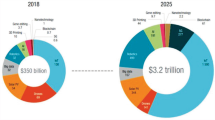
Overview
- Investigates the size and nature of the phenomenon of underused or vacant buildings, the economic, social and normative reasons of its emergence and possible private and public actions for an adaptive and creative reuse of these assets
- Adopts a hybrid smart methodology, focusing on qualitative research with the support of quantitative data
- The contributors are composed of interdisciplinary experts on urban evaluation, design, planning, cultural management, geography and economics
Part of the book series: Smart Innovation, Systems and Technologies (SIST, volume 168)
Access this book
Tax calculation will be finalised at checkout
Other ways to access
About this book
The reality of several European cities shows how traditional forms of stimulating urban renewal – with respect to the financing of operations, how to design and build, and urban planning legislation – no longer work. This book examines an alternative culture of design and regulation, drawing on the richness of the various approaches to the subject to present an integrated study of the phenomenon of reuse across its economic, architectural and urban dimensions. From this theoretical base, it empirically analyses six Italian case studies in terms of the broadness of geography and in their governance models, and of the important role of the unity of cultural destination for their reuse proposal.
The book is intended for all those involved in the cultural challenge of reusing urban abandoned spaces, including public administrators, entrepreneurs, architects, planners and academics.
Similar content being viewed by others
Keywords
Table of contents (9 chapters)
-
Front Matter
-
Perspectives
-
Front Matter
-
-
Discussion and Conclusions
-
Front Matter
-
Editors and Affiliations
Bibliographic Information
Book Title: Abandoned Buildings in Contemporary Cities: Smart Conditions for Actions
Editors: Isabella M. Lami
Series Title: Smart Innovation, Systems and Technologies
DOI: https://doi.org/10.1007/978-3-030-35550-0
Publisher: Springer Cham
eBook Packages: Intelligent Technologies and Robotics, Intelligent Technologies and Robotics (R0)
Copyright Information: Springer Nature Switzerland AG 2020
Hardcover ISBN: 978-3-030-35549-4Published: 09 January 2020
Softcover ISBN: 978-3-030-35552-4Published: 09 January 2021
eBook ISBN: 978-3-030-35550-0Published: 08 January 2020
Series ISSN: 2190-3018
Series E-ISSN: 2190-3026
Edition Number: 1
Number of Pages: VIII, 162
Topics: Computational Intelligence, Artificial Intelligence, Urban Geography / Urbanism (inc. megacities, cities, towns)



